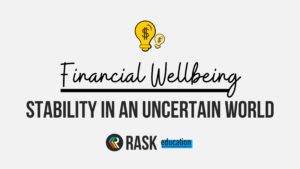An Exchange Traded Fund or ETF is simply a managed fund which is listed on the stock exchange, making it easy to get exposure to a lot of investments with a small amount of money.
Pulling Apart An ETF
A managed fund (read: ‘mutual fund’ in the USA) is a pooled sum of money that is managed by a professional funds management company.
Huh?
Just imagine you and 20 friends put $5,000 into a trust created by an accountant — that’s the fund. If you pay a professional to invest that money, you have yourself a managed fund.
Watch our ‘What is a Managed Fund?‘ video.
An Exchange Traded Fund or ETF is simply a managed fund that can be bought and sold on the stock exchange.
For example, imagine if one of your 10 friends wanted to exit the managed fund. An ETF allows investors to log into their online stockbroking account, click ‘sell’ and withdraw their investment.
Are All ETFs Also Index Funds?
No.
ETFs can use a passive investment strategy (e.g. to track the ASX 200) or they can use active investment strategies, which is when a professional money manager picks stocks they think will outperform the market.
Watch our ‘What is an Index Fund?‘ video.
An ETF might also invest in different asset classes — not just shares. Some ETFs buy into bonds, property, cash accounts or commodities (e.g. gold), and can often invest internationally. It all depends on the strategy used in the fund.
You can read more about the ETF’s strategy in its Product Disclosure Statement (PDS).
How Does An ETF work & How Can I Buy Them?
Investors buy and sell into an ETF the same way they would buy a share on the market. You need a share brokerage account to buy or sell shares.
After the investor clicks “buy” in their stock brokerage account, the fund manager accepts the order and uses the investor’s money to buy more investments to include in the managed fund. The investor receives ‘units’ in the fund.
For example, if an investor bought into a ETF/fund which tracks the ASX 200, the fund manager would issue ‘units’ to the investor (which appear in their brokerage account) and use their money to buy all 200 shares in the ASX 200.
When an investor decides to sell their ETF units, the fund manager will sell the equivalent amount of shares on the market.
Are ETFs Risky?
Like all investments ETFs have risks. Some of the risks will be listed in the fund’s Product Disclosure Statement (PDS), which can usually be found on the fund manager’s website.
Typically, ETFs will be susceptible to market rises and falls (“market risk”), the risk that something might go wrong behind the scenes (“execution risk”) and much more, depending on the strategy and fund manager.
Note: you should always consult a licensed and trusted financial adviser before doing anything. This information is factual information and should not be considered financial advice.
Knowing What’s Right
If you are confused about the potential benefits and risks of ETFs or investing then a trusted, qualified and licensed financial adviser can help you make an informed decision. They can take into account your risk profile, goals, needs and objectives. You should also read the PDS or ‘product disclosure statement’ for any managed fund.



